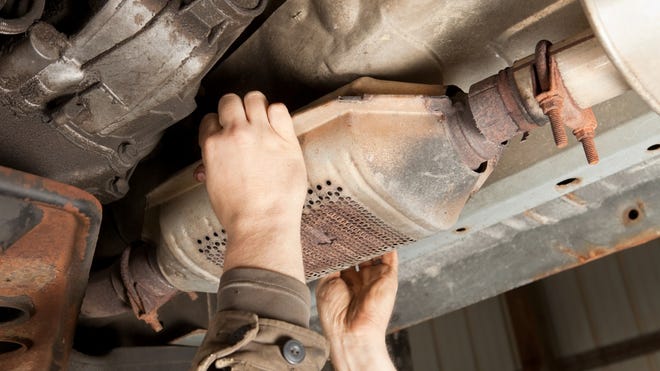
Spurred by a skyrocketing rise in catalytic converter theft in recent years, the Oklahoma House of Representatives has taken action to help ensure Oklahoma doesn’t become a safe haven for the thefts.
House Bill 3005 ensures Oklahoma’s catalytic converter theft prevention measures keep pace with laws enacted in neighboring states. The bill’s author, Rep. Lonnie Sims, R-Jenks, said thefts have more than quadrupled nationally from 3,389 in 2019 to 14,433 in 2020.
HB3005 passed the House 71-17 and now moves to the Senate, where it is authored by Sen. Lonnie Paxton, R-Tuttle.
House Bill 3005 recognizes the significant rise in rates of catalytic converter theft and implements necessary regulation, including classifying the possession or transfer of stolen catalytic converters as a felony, with associated penalties.
Sims said the bill would help deter thieves from selling stolen catalytic converters. It would also provide law enforcement officials more statutory authority to prosecute catalytic converter thefts.
“Catalytic converter theft is a huge problem that unfortunately many Oklahomans have been directly affected by,” Sims said. “Given the significant increase in inflation and ongoing supply chain problems, replacing a catalytic converter can cause significant financial strain on a family and leave them with an inoperable vehicle for months.”
Catalytic converter theft has increased due in part to a significant rise in the price of various precious metals, including rhodium, platinum, and palladium, all of which are used in the construction of catalytic converters. Criminals can quickly remove the catalytic converter from vehicles and sell the stolen part on the black market.
Thefts from commercial carriers can lead to replacement costs in excess of tens of thousands of dollars, and additional lost revenue due to halted operations. Thieves’ hastiness in removing the catalytic converter often results in accidental damage and results in higher repair costs for consumers and insurers.
Businesses with large vehicle fleets, such as dealerships, are often targeted due to the number of potential marks in a small area.
Missouri, Arkansas, Texas and Kansas implemented new laws targeting the thefts in 2021, and Colorado has introduced a measure for consideration this year.






